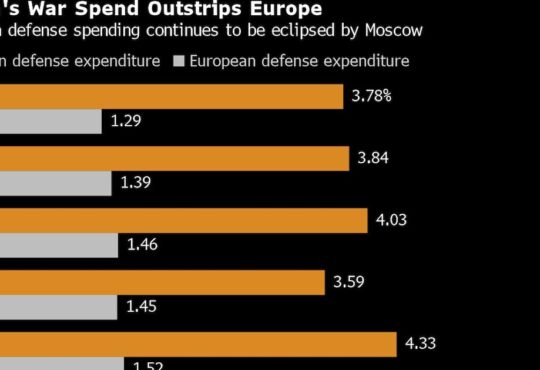
FCA’s supervisory strategy for asset management firms and post-Brexit regulations, the EU’s update of AIFMD II, and more
Welcome to a new edition of our Funds Legal Update.
In this edition, we take a look at the latest regulatory developments for the investment funds and asset management industry in the UK and EU, including: the UK regulator’s supervisory strategy for asset management firms, post-Brexit asset management regulations, recommendations to improve the regulation of liability-driven investments, the revamped regime for the EU’s regulation of long-term investment funds, and amendments to AIFMD II.
FCA sends portfolio letter to asset management firms
On 3 February 2023, the Financial Conduct Authority (FCA) published a portfolio letter setting out its supervisory strategy for asset management.
In the letter, the FCA outlined the harms to consumers or markets that it believes are most likely to arise from asset managers’ business models. Against the backdrop of a rising cost of living, volatile markets and a challenging economic environment, all of which are impacting consumer needs, the FCA will be assessing how effective firms’ governance is in identifying, considering and mitigating harm.
With a particular focus on firms with known issues or where it finds failings, the FCA’s supervisory priorities cover product governance, environmental, social and governance (ESG) and sustainable investing, product liquidity management, investment in operations and resilience, and financial resilience
Product governance
According to the FCA, the main risk is that products and communications do not meet consumers’ needs. This issue is addressed by the Consumer Duty, and all regulated firms are expected to meet this standard when they determine or have a material influence over retail customer outcomes. For more information, see the FCA’s accompanying Consumer Duty letter.
ESG and sustainable investing
The FCA will focus on the governance structures that oversee ESG and stewardship considerations and test whether firms deliver on the claims made in their investor communications. In particular, the FCA will seek to ensure that governance bodies are appropriately structured to oversee and review management information about product development, ESG and sustainability integration in investment processes, third-party and proprietary ESG information providers, and other ESG and sustainability claims made by the firm.
Product liquidity management
Asset managers must meet regulatory requirements when setting a liquidity strategy to meet redemptions. This includes ensuring that exiting and remaining investors are treated fairly when considering the costs of redemption, and the mix of assets which may be employed to meet redemption requests.
Investment in operations and resilience
Asset managers should have appropriate measures in place to understand the operational health of their business, and be able to respond in a timely manner. This includes ensuring the continuity of third-party services and reviewing internal policies and procedures to ensure that all reporting obligations are being met.
Financial resilience
Given the impact of potential economic headwinds, asset managers should ensure that they have sufficient capital and liquidity to operate, and that their governance processes allow for prudential health to be regularly and adequately assessed. Firms should take on board the FCA’s initial observations on firms’ implementation of the Investment Firms Prudential Regime when they are published during the first half of this year.
Parliament looks to improve the regulation of liability-driven investment funds
On 7 February 2023, the House of Lords’ industry and regulators committee outlined its recommendations for improving the regulation of liability-driven investment (LDIs) strategies by defined benefit pension funds.
The recommendations follow the liquidity crisis that that affected a large number of defined benefit pension schemes using leveraged LDIs in September and October 2022. During the turbulence, the committee also wrote to the FCA, the Bank of England and the Pensions Regulator, advising that further scrutiny of LDIs was required.
The committee’s recommendations include introducing stricter limits on the amount of leverage allowed in LDI funds, greater liquidity buffers for leveraged exposures, and bringing pension scheme investment consultants into the regulatory perimeter as a matter of urgency. The committee also proposed strategies to improve the regulation and supervision of pension schemes, for example:
- Giving the Prudential Regulation Authority a role in overseeing pension schemes.
- Introducing a statutory duty or ministerial direction for the Pensions Regulator to consider the impact of the pensions sector on the wider financial system.
- Giving the Bank of England’s financial policy committee power to direct action by regulators in the pensions sector, if they fail to take sufficient action to address systemic risks to financial stability.
The committee has requested a response to its letter by 7 March 2023. The FCA and Pensions Regulator are also due to publish further guidance on LDIs in March and April 2023 respectively.
FCA starts preparing post-Brexit asset management regulation
On 20 February 2023, the FCA published a discussion paper (DP 23/2) seeking views on how to help the asset management industry to innovate, better support investors and boost competition. The feedback will be considered as the FCA sets its priorities for the new regulatory framework for financial services, which is set to repeal EU-retained law post-Brexit.
While the FCA acknowledges the benefits of allowing funds to use third-party portfolio managers, in the regulator’s experience, the standards met by host authorised find managers (AFMs) sometimes fall below par. Some of these concerns emanate from misunderstandings by portfolio managers about the role of the AFM. The FCA has proposed clarifying its expectations or alternatively supports the development of industry guidance to set appropriate standards and act as a guide for host AFMs.
In addition, the discussion paper asks for feedback on extending certain requirements that currently apply to fund managers (including on investment due diligence and managing liquidity) to portfolio managers, changing the rules and guidance around liquidity stress testing and whether the FCA should do more to enable investors to engage with the manager of their fund. The FCA has proposed a number of changes. including changing the boundary of the UK UCITS (undertakings for the collective investment in transferable securities) regime, so that all authorised funds are subject to a single set of rules, or creating a “UCITS” and “UCITS plus” definition, with the latter applying to more complex retail products.
Finally, the FCA has set out its thinking on the role of technology in supporting better outcomes from authorised funds. Areas in which the FCA might amend its fund rules to support technological changes that could modernise fund propositions include: consulting on rules to implement the “Direct2Fund” proposition (which makes it possible for investors to transact directly with the fund when buying and selling units), exploring the use of technology to support the tokenisation of units, and how the rules might be changed to improve investor engagement.
The FCA notes that it is unlikely to take all the specific ideas set out in the discussion paper forward, and plans to engage with a wide range of stakeholders in forums and roundtables as well as individual meetings. As policy proposals develop, the FCA may also convene groups or run policy sprints.
The FCA has requested comments to the discussion paper by 22 May 2023 and aims to publish a feedback statement later in 2023, possibly as part of a consultation paper. Alongside this discussion paper, the FCA is also seeking input into the future disclosure framework for retail investment products in another discussion paper and will consider feedback to that paper when developing any final policy proposals.
BVCA model documents for early-stage investments
In February 2023, the British Private Equity & Venture Capital Association (BVCA) revised and re-launched its standardised documents for early stage venture capital investment This includes a revised version of its Subscription Agreement, Shareholders’ Agreement and Articles of Association. A new model term sheet and ancillary documents will be provided in due course, and the accounting briefing on the treatment of preferred shares is still available for reference.
The revised documents follow a review involving the BVCA’s legal and accounting committee and a working group comprised of experts from the investor and legal community. The documents are intended to promote industry-standard legal documentation so investors and entrepreneurs can focus on deal-specific matters.
ELTIF 2.0 regulation approved by the European Parliament
On 15 February 2023, the European Parliament voted in favour of updating the EU’s regulation for long-term investment funds (ELTIFs), known as “ELTIF 2.0”, which will come into force in 2024. On 22 February 2023, the Council of the EU published the text of the proposed regulation amending the regulation on ELTIFs. The reform was initially proposed by the European Commission in November 2021 and forms part of the EU’s wider capital markets union initiative that aims to develop the EU’s capital markets.
The new regulations include a wider scope of eligible assets (such as green bonds, fintechs, and simple, transparent and standardised securitisations), simplifying the definition of “retail assets”, and an increased market capitalisation threshold. It is hoped that ELTIFs will become the “go-to” fund structure for long-term investments, with particularly beneficial improvements for retail investors. These improvements include more flexible borrowing rules, a raised diversification requirement for greater flexibility and changes in the rules for obtaining mandatory investment advice prior to making an investment. The new regulation is also expected to achieve better alignment with the general AIFMD framework; for example, around borrowing, lending and sustainable finance. There is also recognition of new ‘semi-open ELTIF’ vehicle, where application of the ELTIF rules will depend on whether the ELTIF is to be marketed to retail investors or not, while also ensuring strong investor protection.
The revised ELTIF Regulation is expected to be published in the Official Journal of the EU in March 2023 and enter into application in the first quarter of 2024. For more information, see our Insight.
Delegated regulation incorporates nuclear and gas disclosures into SFDR RTS
On 17 February 2023, Commission Delegated Regulation (EU) 2023/363 was published in the Official Journal of the European Union and entered into force on 20 February 2023.
The delegated regulation amends and corrects the Sustainable Financial Disclosure Regulation regulatory technical standards (SFDR RTS) as regards the content and presentation of information in relation to disclosures in pre-contractual documents and periodic reports for financial products investing in environmentally sustainable economic activities. In particular, the delegated regulation incorporates nuclear and gas disclosures into the SFDR RTS.
ECON report on amendments to AIFMD and UCITS directive
On 9 February 2023, the European Parliament’s economic and monetary affairs committee (ECON) published the report it has adopted on the European Commission’s legislative proposal for a directive amending the Alternative Investment Fund Managers Directive (AIFMD) and the UCITS Directive relating to delegation arrangements, liquidity risk management, supervisory reporting, provision of depositary and custody services, and loan origination by alternative investment funds.
The report contains a draft European Parliament legislative resolution, the text of which sets out suggested amendments to the proposed directive. The European Parliament’s legislative procedure file for the proposed directive states that the report has been tabled for discussion in plenary and that it is awaiting its position at first reading. The Alternative Investment Management Association Limited and the Alternative Credit Council have since published their comments on the latest negotiations on the AIFMD review.
The changes to AIFMD will be made through another European directive, meaning member states will have to incorporate these changes into their national laws within two years of publication. The changes are therefore unlikely to take effect until 2025. However, managers structuring and planning their funds should start thinking carefully about how these provisions may impact their operations, in particular any delegation arrangements and cross-border marketing arrangements.
Sarah Denny, Trainee Solicitor at Osborne Clarke, co-authored this Insight.





